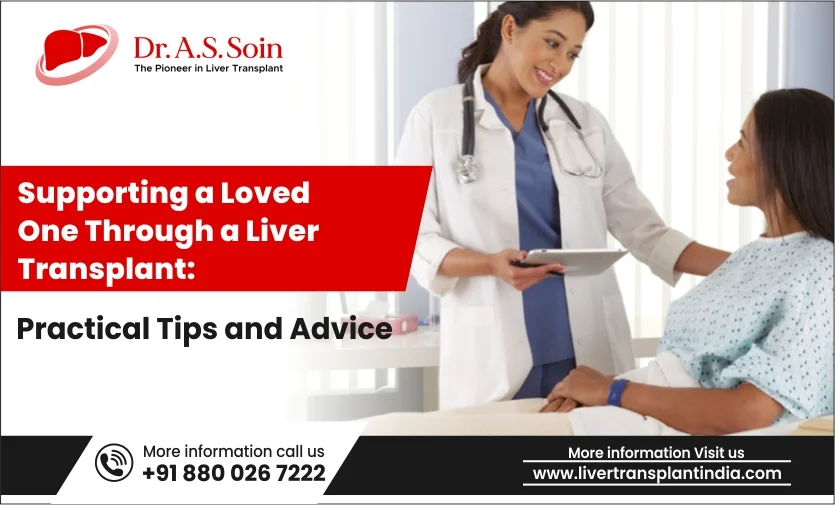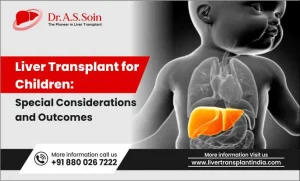A liver transplant is a life-saving procedure that brings significant changes not only for the patient but also for their loved ones. Providing support throughout this journey is crucial for both the patient’s physical recovery and emotional well-being. At Liver Transplant India, led by renowned liver transplant surgeon Dr. A.S. Soin, the team has performed over 5000 successful liver transplants. Dr. Soin and his team offer expert care, ensuring that patients and their families receive comprehensive support, which is vital for the recovery process. This guide aims to offer practical advice on how you can support your loved one through this challenging time.
Table of Contents
ToggleThe Vital Role of Support: Navigating the Liver Transplant Journey
The journey to liver transplantation is multifaceted, requiring a combination of medical expertise and emotional support for both patients and their families. A strong support system can significantly improve outcomes and foster resilience in the face of recovery challenges. Patients often experience anxiety, fear, and uncertainty before and after the transplant, which can be alleviated through counselling and peer support groups. Family members play an essential role by providing practical assistance, emotional encouragement, and a calming presence during this difficult time.
Additionally, working closely with healthcare providers, including experienced liver transplant surgeons like Dr. A.S. Soin, ensures that the patient receives comprehensive care, addressing their physical, psychological, and emotional needs. This holistic approach leads to better post-transplant adherence, improved quality of life, and enhanced overall recovery. By understanding the importance of a robust support system, families can better prepare for the challenges and successes that lie ahead.
Understanding Liver Transplants
A liver transplant is a complex surgical procedure where a diseased liver is replaced with a healthy liver from either a deceased or living donor. Patients typically need this procedure due to liver failure, cirrhosis, or advanced liver diseases. Understanding the various stages of the transplant process can alleviate anxiety and help families offer better support.
The transplant process generally involves:
- Evaluation: A thorough assessment of the patient’s health to determine if they are suitable for transplantation.
- Preparation: Medical tests, lifestyle modifications, and necessary pre-surgery preparations.
- Surgery: The transplant itself, which typically lasts several hours.
- Recovery: Post-operative care that includes medications to prevent organ rejection and regular follow-up appointments.
By educating yourself on each phase, you can provide better emotional and logistical support to your loved one, making the transition smoother for them.
Preparing for the Procedure
Preparation is key to ensuring a smoother transplant journey for both the patient and their family. Here are practical steps to consider:
- Research the Procedure: Educate yourself about the entire transplant process, including the risks, benefits, and post-operative care. This knowledge will help reduce uncertainties.
- Build a Support Network: Coordinate with family, friends, and community members to form a support system. Encourage others to get involved in tasks like meal preparation or offering emotional support.
- Stay Organized: Keep track of appointments, medications, and important documents. Use tools like planners or mobile apps to manage schedules effectively.
- Prepare the Home Environment: Create a comfortable and recovery-friendly living space. This could involve setting up a restful area, stocking up on nutritious foods, and organizing medical supplies.
Providing Post-Operative Support
The recovery phase after a liver transplant is crucial. Here are ways to assist during this period:
- Be Encouraging: Motivate your loved one to adhere to the doctor’s recommendations, take medications on time, and attend follow-up appointments. Your positive reinforcement can boost their morale.
- Assist with Daily Tasks: Offer help with household chores, meal preparation, and other activities of daily living that may be challenging during recovery.
- Monitor Health: Stay vigilant for any unusual symptoms or side effects and communicate them to healthcare providers immediately.
- Create a Calm Environment: A peaceful atmosphere can accelerate healing. Consider incorporating relaxation techniques such as meditation or soothing music.
- Encourage Open Dialogue: Ensure that your loved one feels comfortable sharing their thoughts, fears, and concerns. An open line of communication strengthens emotional support.
Emotional Support: Strengthening Bonds
The emotional toll of a liver transplant can be overwhelming. Here’s how to offer emotional support:
- Be an Active Listener: Sometimes, just listening to your loved one without judgment can provide immense relief.
- Engage in Light Activities: Participating in hobbies or simple activities together can help them stay positive and distracted from the stresses of recovery.
- Offer Reassurance: Remind them that they are not alone and share stories of other successful liver transplant recipients to provide hope and encouragement.
- Seek Professional Help if Needed: If your loved one seems overwhelmed, consider speaking with a mental health professional for additional support.
- Celebrate Small Victories: Focus on and celebrate progress, no matter how small, such as increased energy or improved appetite. These moments can provide emotional boosts during recovery.
Practical Ways to Assist Daily
There are several practical ways to provide day-to-day support post-transplant:
- Nutrition: Help prepare balanced, nutrient-rich meals as the healthcare team advises.
- Medication Management: Assist with organizing medications and ensuring they are taken on schedule.
- Appointment Coordination: Help with scheduling follow-up visits and attending appointments to offer additional support.
- Encourage Light Activity: Light exercise, as the doctor recommends, promotes recovery. Encourage gentle movement like short walks.
- Stay Informed: Keep yourself updated on best practices for post-transplant care so you can offer the most effective support.
The Importance of a Supportive Environment
Creating a nurturing environment is essential for a successful recovery. Here’s how:
- Foster a Calm Atmosphere: Minimize stressors and create a space that promotes peace and relaxation.
- Communicate with Healthcare Providers: Maintain open dialogue with doctors and nurses. Share observations to ensure the best care for your loved one.
- Establish a Routine: Create a daily schedule for medication, meals, and relaxation, which will help your loved one feel secure.
- Celebrate Milestones: Acknowledge progress at every step, as this encourages motivation and resilience.
Conclusion
Supporting a loved one through a liver transplant is both a challenging and rewarding experience. By understanding the procedure, staying organized, and providing emotional and practical support, you can play a pivotal role in their successful recovery. With expert guidance from Dr. A.S. Soin and his experienced team at Liver Transplant India, along with your unwavering support, your loved one can look forward to a healthier and more fulfilling future.
FAQs
- What is the success rate of liver transplants?
The success rate of liver transplants is around 85-95% in the first year, depending on the patient’s health and the surgical team’s expertise/ experience. - How does the waitlist for liver transplants work?
Patients are prioritized based on their MELD (Model for End-Stage Liver Disease) score, which assesses the severity of their condition. - Can someone travel after a liver transplant?
Yes, with doctor’s approval. They must have access to medical care and carry necessary medications during travel. - How important is family support in recovery?
Family support is critical for both emotional well-being and adherence to medical guidelines, contributing to a smoother recovery process. - What lifestyle changes are needed after a liver transplant?
Patients should adopt a healthy lifestyle, including a balanced diet, regular exercise, and consistent follow-up care to ensure long-term success.








